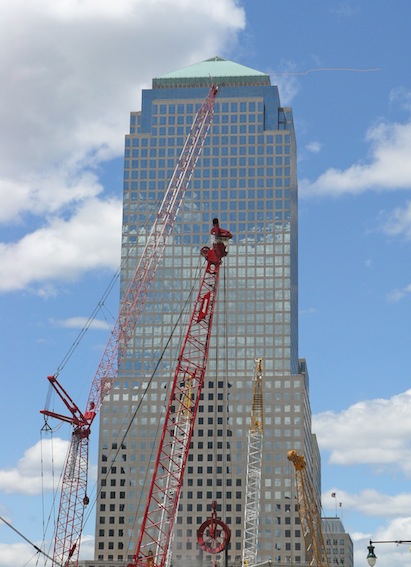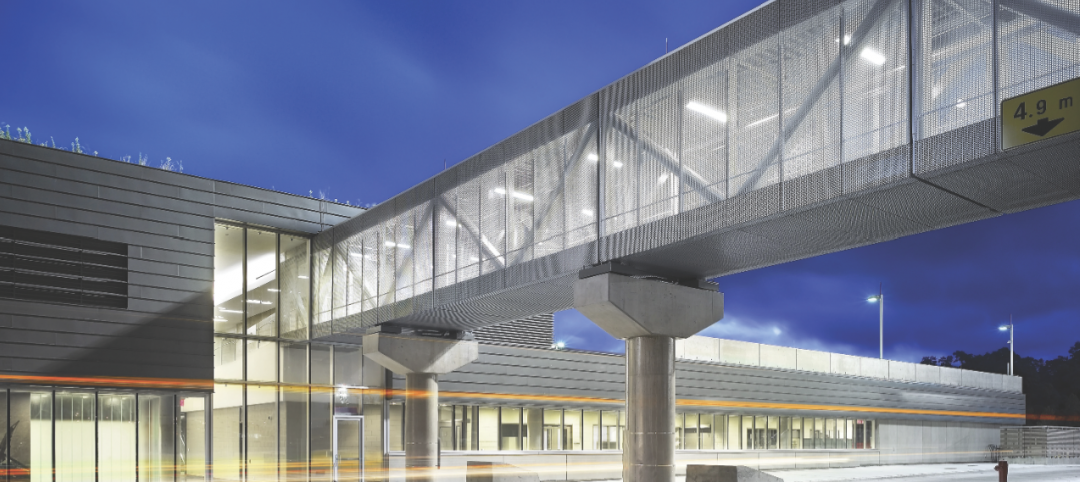Although the construction recovery continues to lag other sectors as well as the overall U.S. economy, the industry is finally seeing a rebound. Commercial real estate giant Jones Lang LaSalle recently released its Summer 2013 Construction Highlights report, which found that there are some sectors (such as energy and high-tech) driving demand for construction, while a few major cities are starting to record increased levels of speculative office building developments. However, with construction demand on the rise in some areas, JLL documents labor shortages and material costs increasing as well.
Local Markets
The recovery theme in the U.S. construction industry can be easily identified as lagging other sectors and the overall U.S. economy. Among many challenges specific to the construction industry, the fact that the overall US.. labor market recovery has been so prolonged is not helping a rebound in construction, which depends on a growing workforce to expand demand across property types. The previous “bright spot” in the construction world – public construction – has taken a backseat in the recovery as the Federal government trims budgets and pulls back on pending.
While job numbers year-over-year are improved, construction employment was hard hit in the month of April, showing a net loss of 6,000 jobs, very much a function of pullback in non-residential sectors including public construction. With the long-awaited rebound in the housing market now permeating the single-family realm, however, job gains and increases in construction-put-in place for residential construction have materialized, and should fuel stronger growth. President Obama’s persistent efforts to increase infrastructure construction funding and MAP-21 investment, already accounted for in budgets, could also ultimately help shore up weaker areas of the construction industry during the next 12 months.
Market Highlights
· Seattle: Technology drives construction, with just over 1 MSF delivered in 2012, much of it pre-leased to Amazon. The spec development pipeline is picking up.
· Portland: Owner-user office development comprises the major projects under construction. Several speculative projects are proposed, but adaptive reuse is the preferred strategy.
· San Francisco: Office and multi-family construction is booming as developers work to meet demand from the growing economy, driven by the technology industry.
· Los Angeles: The first skyscraper to be added to the CBD in over 20 years is underway. Upon completion, the Wilshire Grand will feature retail, office and hospitality components.
· Orange County: Vacancy remains high and rents are still too low to justify any spec development at this time. However, four sizable build-to-suit projects are currently underway.
· Boston: Four build-to-suit projects are underway totaling 2.5 MSF in Boston. Cambridge has 2.5 MSF of new construction (38% lab space, 62% office).
· New York: Construction to begin on more than 5.0 MSF of office space during the next five years, with potentially 25 MSF delivered over next two decades.
· Philadelphia: Liberty Property Trust will break ground on a build-to-suit project for Vanguard. The six-story, 205,000 SF facility will be built to meet LEED standards.
· Washington DC: Nearly 6.2 MSF of office construction is underway. Over one-third of the under construction inventory has garnered preleases.
· Atlanta: Demand for interior build outs up in the last six to nine months; upward pressure on construction costs. Pricing has bottomed and expected to rise due to housing market improvements.
· Minneapolis: Construction activity is on the rise, but so are costs. Construction prices increased 3.2% since last year. Recent negotiations with labor unions will result in average annual increases in labor costs of 2-2.5% through 2016.
· Chicago: No office construction is underway, but River Point is in development stages and broke ground in Q4 2012. Multifamily in the Loop and River North is expanding aggressively, with about 1,000 units under construction.
· Dallas: Availability of the trades is becoming an issue as new construction activity accelerates. This will likely lead to higher labor costs and the need for higher contingencies in project proformas.
· Houston: Houston’s booming energy market continues to drive new office construction. Houston’s CBD market is expecting 4 MSF of new office deliveries in the next 36 to 48 months.
Related Stories
| Jan 4, 2011
Product of the Week: Zinc cladding helps border crossing blend in with surroundings
Zinc panels provide natural-looking, durable cladding for an administrative building and toll canopies at the newly expanded Queenstown Plaza U.S.-Canada border crossing at the Niagara Gorge. Toronto’s Moriyama & Teshima Architects chose the zinc alloy panels for their ability to blend with the structures’ scenic surroundings, as well as for their low maintenance and sustainable qualities. The structures incorporate 14,000 sf of Rheinzink’s branded Angled Standing Seam and Reveal Panels in graphite gray.
| Jan 4, 2011
6 green building trends to watch in 2011
According to a report by New York-based JWT Intelligence, there are six key green building trends to watch in 2011, including: 3D printing, biomimicry, and more transparent and accurate green claims.
| Jan 4, 2011
LEED standards under fire in NYC
This year, for the first time, owners of 25,000 commercial properties in New York must report their buildings’ energy use to the city. However, LEED doesn’t measure energy use and costs, something a growing number of engineers, architects, and landlords insist must be done. Their concerns and a general blossoming of environmental awareness have spawned a host of rating systems that could test LEED’s dominance.
| Jan 4, 2011
LEED 2012: 10 changes you should know about
The USGBC is beginning its review and planning for the next version of LEED—LEED 2012. The draft version of LEED 2012 is currently in the first of at least two public comment periods, and it’s important to take a look at proposed changes to see the direction USGBC is taking, the plans they have for LEED, and—most importantly—how they affect you.
| Jan 4, 2011
California buildings: now even more efficient
New buildings in California must now be more sustainable under the state’s Green Building Standards Code, which took effect with the new year. CALGreen, the first statewide green building code in the country, requires new buildings to be more energy efficient, use less water, and emit fewer pollutants, among many other requirements. And they have the potential to affect LEED ratings.
| Jan 4, 2011
New Years resolutions for architects, urban planners, and real estate developers
Roger K. Lewis, an architect and a professor emeritus of architecture at the University of Maryland, writes in the Washington Post about New Years resolutions he proposes for anyone involved in influencing buildings and cities. Among his proposals: recycle and reuse aging or obsolete buildings instead of demolishing them; amend or eliminate out-of-date, obstructive, and overly complex zoning ordinances; and make all city and suburban streets safe for cyclists and pedestrians.
| Jan 4, 2011
An official bargain, White House loses $79 million in property value
One of the most famous office buildings in the world—and the official the residence of the President of the United States—is now worth only $251.6 million. At the top of the housing boom, the 132-room complex was valued at $331.5 million (still sounds like a bargain), according to Zillow, the online real estate marketplace. That reflects a decline in property value of about 24%.
| Jan 4, 2011
Luxury hotel planned for Palace of Versailles
Want to spend the night at the Palace of Versailles? The Hotel du Grand Controle, a 1680s mansion built on palace grounds for the king's treasurer and vacant since the French Revolution, will soon be turned into a luxury hotel. Versailles is partnering with Belgian hotel company Ivy International to restore the dilapidated estate into a 23-room luxury hotel. Guests can live like a king or queen for a while—and keep their heads.
| Jan 4, 2011
Grubb & Ellis predicts commercial real estate recovery
Grubb & Ellis Company, a leading real estate services and investment firm, released its 2011 Real Estate Forecast, which foresees the start of a slow recovery in the leasing market for all property types in the coming year.
| Jan 4, 2011
Furniture Sustainability Standard - Approved by ANSI and Released for Distribution
BIFMA International recently announced formal American National Standards Institute (ANSI) approval and release of the ANSI/BIFMA e3-2010 Furniture Sustainability Standard. The e3 standard represents a structured methodology to evaluate the "sustainable" attributes of furniture products and constitutes the technical criteria of the level product certification program.










